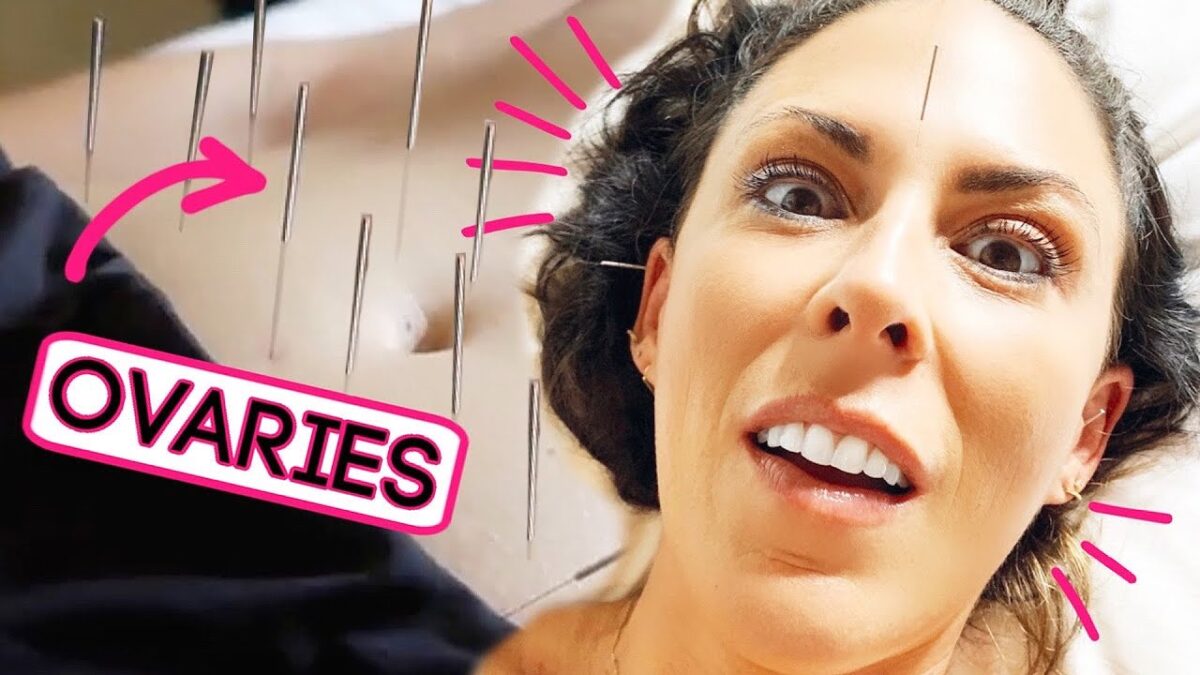Acupuncture is an ancient Chinese therapy that some folks use to treat a number of different medical conditions. An acupuncturist puts very fine, thin needles into certain points of your body to stimulate natural blood circulation to that particular area. Some practitioners say that acupuncture can help with infertility because it can stimulate the natural hormones in a woman’s body that are related to fertility. There’s also some evidence that the therapy can improve a woman’s chances of getting pregnant. When used specifically as a fertility treatment, some advocates of acupuncture for fertility say it may help:
But how does acupuncture work? It’s probably best to break it down into its basic elements first. Acupuncture works because it helps to regulate the flow of energy in your body. It may sound complicated, but it’s really quite simple. A good Chinese herbalist or acupuncturists can explain this in great detail.
For example, in Chinese culture, there’s been a long-standing belief that placing a pin in a woman’s abdomen will help to regulate her menstrual cycle and allow her to have live births. However, researchers concluded that this was not, in fact, the case. They found that acupuncture didn’t help regulate the hormones progesterone or estrogen, which are key to embryo transfer.
The study did not look at whether acupuncture had any effect whatsoever on egg retrieval rates or implantation rates. But what researchers found is that acupuncture can improve the quality of a woman’s menstrual cycles. How is this possible? The researchers found that acupuncture improves the function of the pituitary gland, which regulates menstrual cycles, stimulates menstruation, and helps with ovulation. This is an important finding since many fertility drugs and pharmaceutical methods do not work. This may be the reason why many couples still carry children despite infertility treatments.
Another finding shows that acupuncture promotes better sperm quality and survival. Sperm are produced in the seminiferous tubules and are then transferred into the fallopian tubes. Infertility has been shown to be associated with elevated stress hormone levels. Acupuncture has been shown to reduce stress hormone levels and thereby improve sperm quality and survival.
One of the reasons why patients undergoing fertility treatment are willing to try acupuncture is that the procedure is relatively painless. In addition, there are very few risks. When compared to IVF or traditional in vitro fertilization, acupuncture only requires about 10 sessions over four months to achieve pregnancy.
Another finding showed that acupuncture improves the quality of the mother’s menstrual cycle. While IVF requires multiple visits and use of fertility medication, this treatment is not painful. Women undergoing in vitro fertilization (IVF) usually take one cycle prior to their menstrual cycle to maximize their chances of pregnancy.
These findings provide a promising new direction for people suffering from infertility issues. With the variety of fertility options available through various clinics around the world, patients experiencing infertility problems can explore all of their options with the guidance of their fertility doctor. If acupuncture for fertility issues is recommended, patients should schedule an appointment with their practitioner today.
Increased sperm quality has been proven through many studies. The reduction in sperm motility and damage caused by oxidative stress has been shown to be reduced during acupuncture treatments. Acupuncture reduces abnormal blood flow to the testes, which can cause damage to sperm. This can lead to a decrease in egg production and azoospermia (no sperm). Reduced sperm quality has been a major benefit of acupuncture.
Women who undergo an acupuncture treatment for fertility will notice a difference within the first couple of weeks after the procedure. Women undergoing IVF may experience a smaller response. However, women experiencing acupuncture treatments have reported a significant change in their pregnancy rates. It’s important to note, however, that this benefit may be temporary as some scientists believe that fertility hormones such as oestrogen/progestogen and the stress associated with pregnancy can affect acupuncture treatment.
For couples struggling with infertility, using acupuncture for fertility is an alternative treatment option. If you are trying to conceive, you should know that getting pregnant is not always simple. In addition to medication and natural treatment options, acupuncture can be an excellent way to help boost your chances of conceiving. If you are having trouble getting pregnant, this may be the best option for you.
Acupuncture has helped treat many infertility problems over the years. It has also shown positive results when used in conjunction with other treatments. Don’t assume that acupuncture alone will help treat infertility. Couples who are struggling to conceive should research the treatment options available to them. With the proper treatment, many couples have had success in achieving pregnancy.
